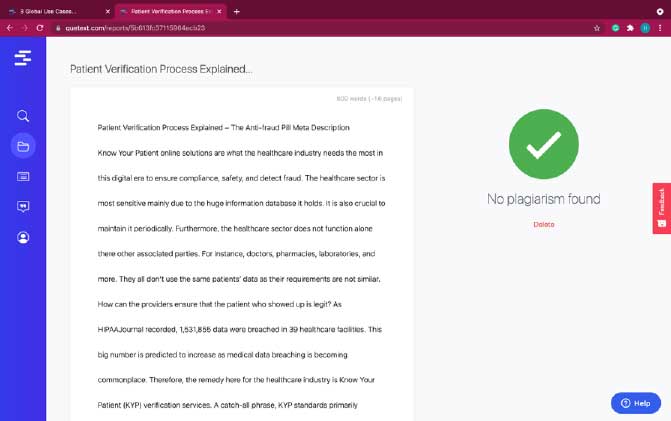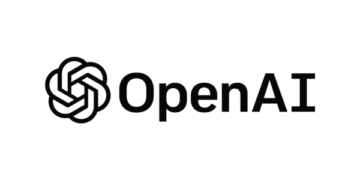Patient Identity Verification – Know Your Patient online solutions are what the healthcare industry needs the most in this digital era to ensure compliance, safety, and detect fraud.
The healthcare sector is most sensitive mainly due to the huge information database it holds. It is also crucial to maintain it periodically. Furthermore, the healthcare sector does not function alone there other associated parties. For instance, doctors, pharmacies, laboratories, and more. They all don’t use the same patients’ data as their requirements are not similar. How can the providers ensure that the patient who showed up is legit? As HIPAAJournal recorded, 1,531,855 data breaches in 39 healthcare facilities.
This big number is predicted to increase as medical data breaching is becoming commonplace. Therefore, the remedy here for the healthcare industry is Know Your Patient (KYP) verification services. A catch-all phrase, KYP standards primarily correlate to Know Your Customer (KYC). Hence, patients’ identity verification not only prevents fake profile treatments but also ensures customers’ due diligence.
Read More:- Working Of Machine Learning In AI Paraphrasing Tools
Patient Identity Verification Process – Working Mechanism
The process is seamless, user-friendly, accurate, and quick. In the KYC context, when customers travel abroad, onboard platforms, or start a new business they are asked to provide identity documents. Similarly, the patient verification process requires case histories and identity proof alongside personal and health information. This is how healthcare centers can make sure that they are providing assistance to legit and authentic patients. To put this into practice, the health sector is bestowing digital services like onboarding and protecting information.

The process employs the following set of steps:
- In the initial stage, patients are asked to upload genuine identity documents that include ID c
ards, passports, green cards, or driver’s licenses. Patients first fill in the information and later upload pictures as proof to support their identity claim. - After uploading documents, patients are required to upload a real-time picture. The Artificial Intelligence-enabled services then scan and extract information by using OCR technology. They create a face map and match it with the one on documents.
- In this step, the services authenticate documents by detecting any tampering or forgery within them.
- Moving on, the machine learning-based services conduct ID verification for pharmacies as well as other healthcare providers to ensure that the patients meet the minimum age criteria and are worthy of the treatment.
- In the last step, services fetch results and present them in front of the end-user.
The healthcare sector deals with a huge patient base and the information is the most sensitive. If in any case it is compromised, the global patients’ database will be put at stake. And criminals will never let this opportunity slip from their hands. Hence, to ensure patient due diligence and authentic assistance, patient ID verification is vital.
Read More:- OpenSea Sees Massive Volume, Collections Gain Popularity as NFTs Boom in 2022
ID Verification for Pharmacies
Pharmacies alongside healthcare centers are equally exposed to risks. For instance, an underaged buyer can show up at a pharmacy with a forged or an adult’s prescription to buy age-restricted products. Therefore, pharmacy owners need to attain a legit license for a two-way traffic process – buying and selling. By employing ID verification for pharmacies, they can readily verify the age and identity of buyers. In the case of online dealing, they can ask for documents and assure authenticity.
How Digital Patient Identity Verification Services Back the Healthcare Industry?
Verification of patients’ identities is the need of the hour for healthcare providers and other affiliates. This is so as fraud is increasing and criminals are massively carrying out data breaches to misuse information. Therefore central authorities have obliged the industry to abide by KYP protocols for more than one reason.
-
Protection of Patients’ Information
As standards mandates, there are certain rules and regulations that put emphasis on patients’ data safety. This is how healthcare centers can protect information and simultaneously ensure compliance. Furthermore, institutions operating with Protected Health Information (PHI) are required to be more careful because failure in compliance can make them meet unforeseen consequences including hefty fines and complete shutdown.
-
Prevention of Insurance Fraud
Patients take help from insurance firms to back their expensive treatments. Therefore, when criminals carry out data breaching, every piece of information is compromised. This way they can avail medical and financial-based treatment benefits. Moving on, fraudsters exploit medical case histories and payment methods that legit patients use. Hence, information should be kept private and preserved by facilities in their databases to ensure no criminals get their hands on it.
Read More:- Move Over Ethereum: 5 Blockchains That Support NFTs
In the End
Verify Patients Indeity has become increasingly crucial for pharmacies, healthcare centers, and service providers. This is because criminals are readily taking advantage of mistyped information and other loopholes for data overtake. To combat such menaces, central regulatory authorities have mandated the healthcare industry to abide by verification protocols.













